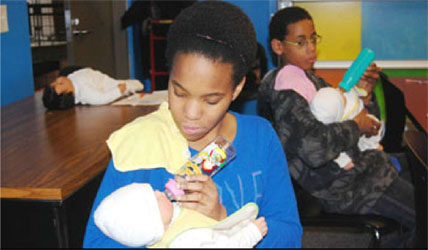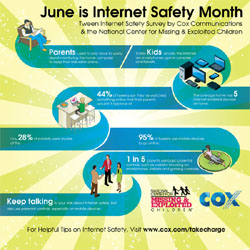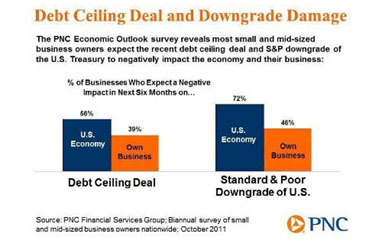Why People Prefer to Have Teen Babysitters
A survey shows that parents are struggling to find trusted babysitters and would pay more for well-trained teens.
The Red Cross poll found that in the past 24 months, 55 percent of parents surveyed decided to stay home because they couldn’t find a babysitter. The survey also found that nearly a third (30 percent) of parents rejected a potential babysitter because of safety concerns.
Parents want to entrust their children to babysitters trained in first aid, CPR (cardio-pulmonary resuscitation) and childcare skills, and more than 80 percent of parents believe that teenage babysitters should be paid more if they have these skills. However, eight in 10 parents (83 percent) have looked to adult relatives, while nearly half (48 percent) have relied on adult friends to watch their children.
“Parents want recommended sitters who have childcare training and CPR certification,” said Tener Goodwin Veenema, a member of the Red Cross Scientific Advisory Council. “As a mother of four, I know that there is more to choosing a babysitter than price or availability. The safety and welfare of our children is first and foremost.”
About half (51 percent) of Americans rely on unpaid babysitters, and nearly a quarter (24 percent) pay between $6 and $10 an hour for someone to watch their children. Ten percent pay between $11 and $15 an hour; while four percent pay between $16 and $20 an hour, making babysitting a potentially lucrative option for qualified teenagers.
A majority of parents believe sitters should be paid more if they are trained to help a child who is choking, recognize potential emergency situations, identify items that could be hazardous to small children, and give first aid for minor cuts and bruises. More than three in four (77 percent) of parents with children younger than 17 feel teenagers should receive some training before they begin babysitting.
It was a telephone survey of 1,082 U.S. adults 18 years and older on March 22–April 1, 2012 conducted in ORC International’s CARAVAN survey using a landline plus -cell dual-frame sampling design. The findings were released Wednesday, May 9.
The Red Cross babysitting, CPR and first aid courses teach teens how to care for young children and handle emergency situations. The American Red Cross babysitting certification course gives youth the knowledge and confidence to care for infants and school-aged children. Adults can also boost their babysitting skills by enrolling in CPR and First Aid courses.
Photo courtesy: American Red Cross
💛 Support Independent Journalism
If you find RMN News useful, please consider supporting us.




